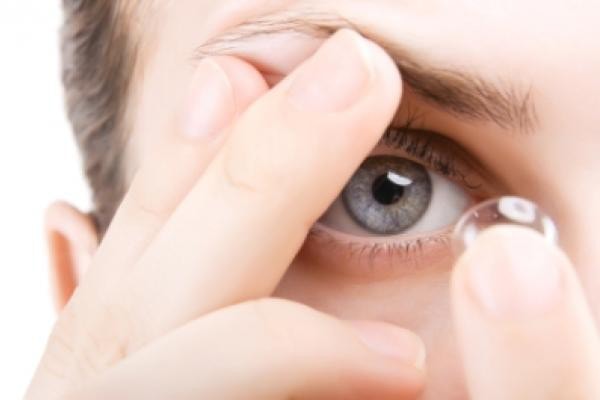Should I wear contact lenses to sleep?
When sleepiness starts to take over and your eyelids become heavy, it can be very embarrassing to try to open your eyes to take out your contact lenses.
But it's a much-needed step, according to new research from the CDC.
Sleeping in your contact lenses can increase your risk of eye infection eightfold. And with 45 million Americans wearing contact lenses, this infection can cause permanent eye damage.

The majority of Americans—75%—need glasses to help with their vision. While most people wear glasses, contact lenses make life easier for the 11% of people with less-than-perfect vision.
Contact lenses have some safety advantages, especially for people who play sports or participate in outdoor activities because they won't break or fall.
But the eye is a delicate organ, and needs the proper balance of salt water, oxygen, and good nutrition.
Contact lenses help you avoid eye strain so you can see more clearly. But they can also suffocate your eyeballs, especially if you wear them for too long.
Without enough oxygen, the eyes are vulnerable to all sorts of bacteria that normally live peacefully on the skin or in the mouth—like other bacteria, like measles or even sexually transmitted diseases—but don't belong in the eyes.
The conjunctiva, the outermost layer covering the eye, normally provides strong protection against these invaders.
But lack of oxygen weakens the protective barrier and creates small holes in the cornea that allow bacteria to enter.
This can cause infectious keratitis, which, if left untreated, can cause permanent corneal damage and blindness.
In 2010—the most recent year for which the CDC has comprehensive data—one million people visited emergency rooms across the United States for treatment of eye infections.
Only 1,075 of those cases involved contact lenses, but the latest report found that falling asleep while wearing them was the most common reason contact lenses harmed wearers.
“Of the many behaviors that increase the risk of contact lens-related corneal infections, sleeping in lenses is one of the riskiest and one of the most commonly reported behaviors among contact lens users, both adolescents and adults,” the CDC report said.
These practices are very common, with around a third of contact lens wearers admitting that they occasionally fall asleep or take a nap while wearing their lenses.
Researchers have compiled six case studies that demonstrate why you should quit this habit.
A 17-year-old girl who regularly wore soft contact lenses to bed developed an infection so severe it became an ulcer in her eye, causing permanent scarring of her cornea.
Another man developed an eye infection after a two-day hunting trip. When he wiped his eyes after showering, he heard a “popping” sound. He also had a corneal ulcer, but it was much worse.
He required an emergency corneal transplant, and despite cataract surgery a year later, his vision never fully recovered.
An 18-year-old man had been wearing over-the-counter contact lenses for decorative purposes. He usually wore them to bed and had been wearing them for a year. Doctors were able to treat the infection, but his vision was permanently affected.
The CDC notes that all types of contact lenses are regulated and no one should get them — even if they are not for vision correction — without a prescription.
The agency warns that while some contact lenses are approved for overnight wear, it's best not to.
The FDA classifies overnight contact lenses in the same group as pacemakers because they pose “the greatest risk of harm,” according to the CDC report.

